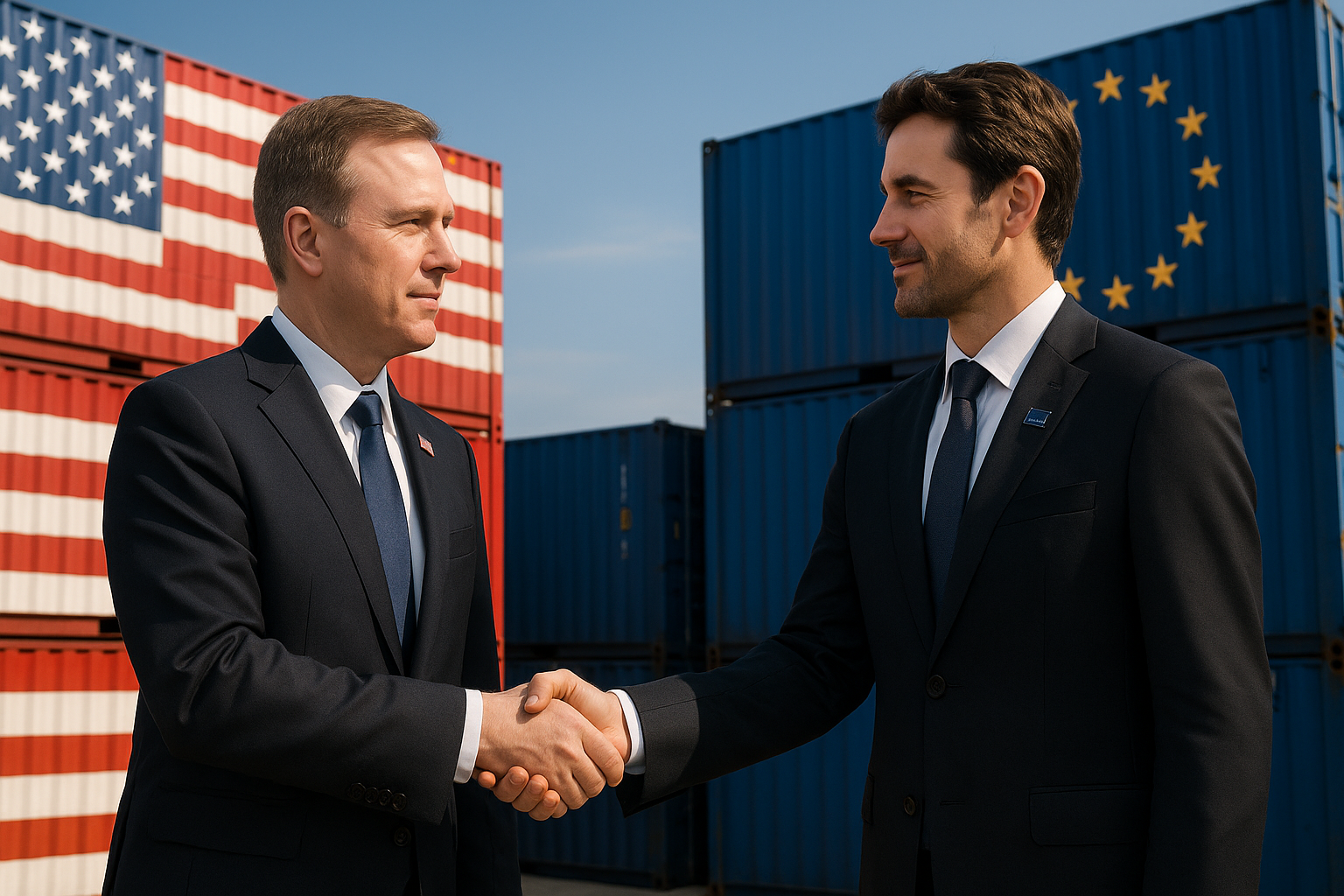President Trump announced Sunday he's struck a deal with the European Union that would avert—at least for now—what could have been a nasty trade war with America's largest trading partner.
Speaking to reporters at his Turnberry golf resort in Scotland (because apparently international economic policy is best negotiated between rounds), Trump declared the agreement a major victory following talks with European Commission President Ursula von der Leyen.
"We have a deal with the European Union that's going to be fantastic," Trump said, providing few specifics but plenty of superlatives. "They treated us very badly for years, but not anymore."
I've covered Trump's trade maneuvers since his first term, and this follows a familiar playbook: threaten massive tariffs, create crisis conditions, then claim victory when reaching any agreement—regardless of its actual substance.
The timing couldn't be more critical. The EU-US trade relationship represents about $1.1 trillion annually in goods and services. Any serious disruption would send tremors through global markets already walking a tightrope between inflation fears and recession anxieties.
Look, what's particularly interesting here isn't just the deal itself but the methodology. Trump has consistently treated trade deficits as scorecards of national "winning" or "losing"—a perspective most economists find simplistic but that resonates with his base. The EU, meanwhile, has had to balance standing firm against looking like they're caving to pressure.
European automakers had the most to lose. BMW, Mercedes, and Volkswagen have been sweating bullets since Trump began threatening 25% tariffs on European vehicles. Their stocks took a beating last month when Trump first raised the tariff specter but should rebound on Monday's trading.
"This agreement preserves market access while addressing certain concerns," a diplomatic statement from von der Leyen read—the kind of bloodless language that usually signals someone had to give significant ground.
So what's actually in this deal? That's where things get murky.
The announcement mentioned "reciprocal treatment" and "balanced trade," but concrete details remain scarce. Having witnessed similar announcements with China that later unraveled when implementation began, I'm cautious about declaring this a comprehensive solution.
Trade agreements live in the fine print. And that fine print can make the difference between a transformative economic arrangement and a temporary pause in hostilities.
Wall Street will undoubtedly cheer this news tomorrow—markets hate uncertainty more than almost anything. But the broader pattern of governance-by-tariff-threat introduces a different kind of systemic uncertainty that's harder to price into models.
For businesses caught in these crosscurrents, planning becomes nightmarishly complex. Do you invest in European manufacturing capacity as insurance against future tariff threats? Restructure supply chains? Or simply build larger risk premiums into your models and hope this fragile peace holds?
The irony is thick enough to cut with a knife. While Trump portrays himself as making trade simpler for American businesses, his approach actually introduces new complications and uncertainties. A more predictable trading regime—even if theoretically less perfect—might better serve business interests than this constant brinkmanship.
This agreement comes amid a broader shift away from the unfettered globalization that defined the post-Cold War era. We're witnessing the emergence of something more regionalized and politically contingent. Call it deglobalization or friend-shoring or whatever buzzword consultants are charging millions to explain these days.
What happens next? That depends on whether this is truly a comprehensive framework or merely a temporary truce while both sides regroup.
For now, global markets can exhale slightly knowing that at least one potential crisis has been averted. But in the high-stakes world of tariff diplomacy, today's solution has an uncanny habit of becoming tomorrow's problem.
